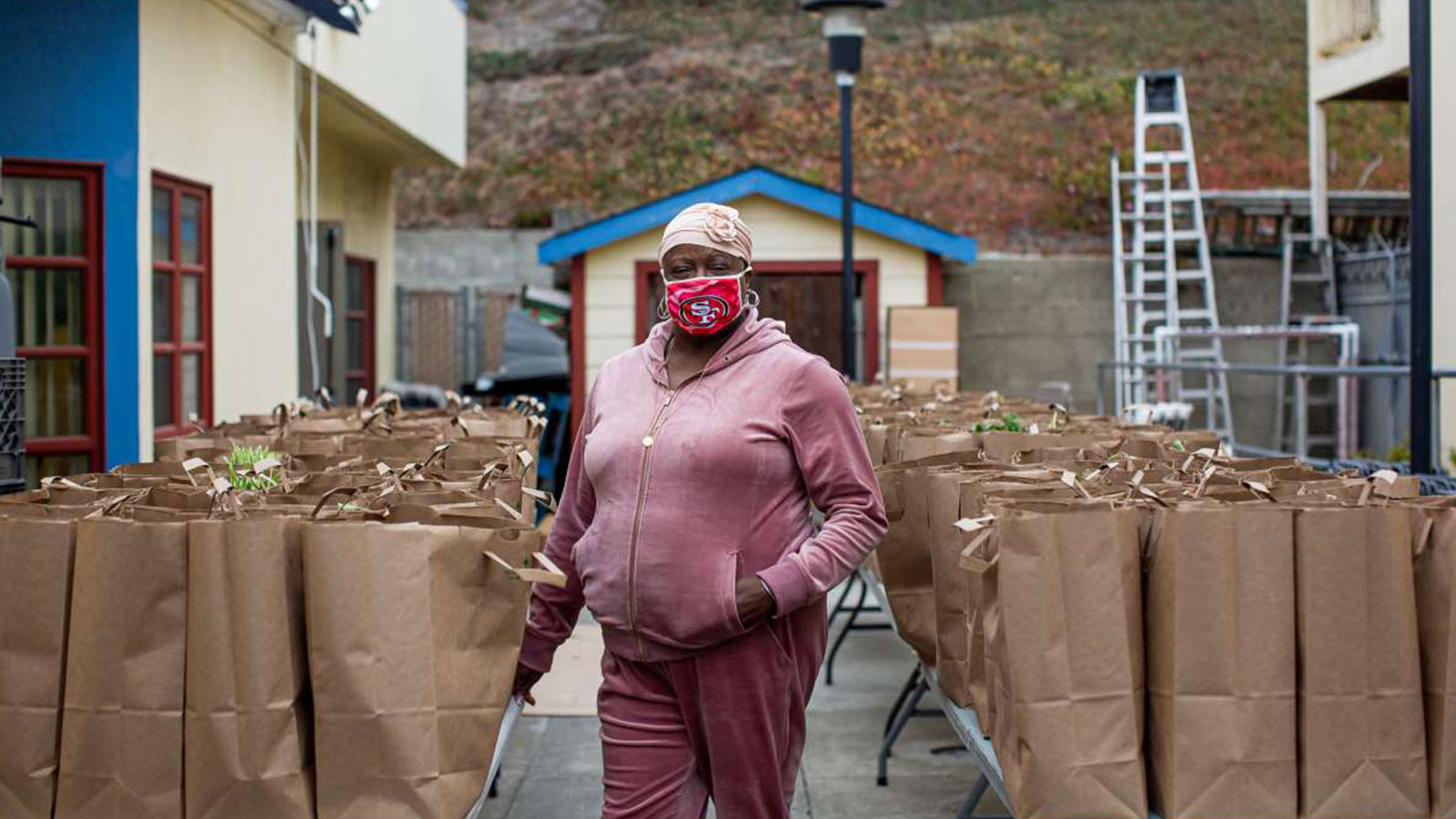By Michelle Robertson, SFGATE —
One thousand two hundred and seventy. It’s a number Felisia Thibodeaux can list off the top of her head. That’s because it’s the number of people she has gotten vaccinated by direct referral so far — and the number keeps growing.
Thibodeaux is the executive director of the Southwest Community Corporation, which operates out of the I.T. Bookman Community Center in San Francisco’s Ingleside Heights.
Before the pandemic, Thibodeaux’s job entailed running the day-to-day operations of the primarily senior-serving organization. But as the coronavirus began hitting the U.S. in 2020, her priorities shifted to ensuring that her community was protected against COVID-19.
Seventy-six percent of residents in the Oceanview/Merced/Ingleside area are vaccinated, as of Aug. 9, according to city data. That works out to about 21,000 people — a chunk of whom Thibodeaux personally called to ensure they had access to the vaccine.
The No. 1 issue she’s faced in getting people vaccinated, she said, is access.
“Having access was half of the battle,” she told me during a recent conversation. “If we could establish a hub for access, then we can do many things, not to mention build continuity, whether there’s an earthquake, fires or the smoke.”
“We’ve faced a lot during the pandemic,” she said.
Because the majority of people I.T. Bookman serves are elderly, they don’t or can’t drive. Traveling by bus to the Moscone Center or the Bayview for vaccination is often untenable for those in the Lakeview area, Thibodeaux said, and requires hourslong bus rides. So she brought them to the vaccine.
Thibodeaux purchased a 15-seater van with funds from an anonymous donor and took turns driving one or two people at a time to the vaccination center at San Francisco City College. To ensure people in her community knew about the vaccine and how to make appointments, she and her team called hundreds of people — Thibodeaux estimates the number to be about 700.
I wanted to know how Thibodeaux managed to not only get so many people vaccinated but convince the holdouts. Beyond access, she said much of vaccine hesitancy in her community — the community center serves about 60% Black people, 30% Asian people and 10% Latinos, whites and other races, Thibodeaux estimates — revolves around fear. But it’s not always presented as such.
She told me the story of one young man who was walking by the senior center one day.
“Have you been vaccinated?” Thibodeaux asked, to which the man replied, “No, I’m not putting that s—t in my arm.”
Thibodeaux paused. “What are you talking about, that s—t? The vaccine?” she remembers asking. “What about the vaccine?”
“I wasn’t letting him off with saying, ‘I’m not putting that s—t in my arm,’” she said.
A longer conversation revealed to Thibodeaux that the man was scared, whether it was from information he was reading online or hearing in the neighborhood. He came back a few days later and told Thibodeaux he couldn’t get her voice out of his head.
He got the vaccine, then went on to become an ambassador for vaccination at the center.
With Thibodeaux’s support, he helped organize a focus group with a UCSF physician at the center with other young men hesitant to get vaccinated. Eight men left the group that day to get their shots.
“We took the focus group to the block,” Thibodeaux said with pride.
Many vaccinations happen in the neighborhood by word of mouth, Thibodeaux said. One person gets it and tells another, then they tell another, and the cycle continues. Thibodeaux says that the key to convincing hesitant people is keeping it personal.
“The secret is to keep it 100,” she said.
Thibodeaux has lupus. She’s also had a kidney transplant. She said by revealing her own health conditions to others, it helps them to overcome their own fears.
“I was speaking to them as one of them,” she said. “I’m not laid up jerky and having a seizure [from getting the vaccine], I’m just sharing my own story.”
Thibodeaux cited the historic mistreatment of Black people by the American health care and medical research system. People in her community, she said, don’t necessarily trust medicine because there’s been so much wrongdoing.
“I just say straight up that you can sit here and keep talking about what happened in 1977, or you could do something in 2021 that changes your life and history,” she said. “… Times have changed.”
Until recently, Thibodeaux often worked 20 hours a day, wearing “many different hats.” Someone needed help in the kitchen? Thibodeaux rolled up her sleeves and cooked. Someone needed food delivered? Thibodeaux got in her van and brought it to them.
“It really took everything,” she said. “I’m not proud of it because I was way over my boundaries, and when you go beyond your boundaries, it costs you something.”
After a year and a half of nonstop work, Thibodeaux said she couldn’t eat and began losing her vision.
“It started getting really hard,” she said. “And it wasn’t about money, I’m like not even being paid [for the long hours I work].”
But for Thibodeaux, it’s been a meaningful struggle. Recently, the last holdout on her staff got the vaccination.
“He then changed his mom’s mind. And then his brother,” and so on and so forth.
The key goes back to Thibodeaux’s one-person-at-a-time philosophy.
“It’s just changing the minds of one person at a time and meeting them where they are,” she said. “We’re afraid to talk to people, but you have to come straight up and not give people an opportunity to give you an excuse.”
Source: SFGATE
Featured Image: Felisia Thibodeaux, executive director of the Southwest Community Corporation, stands with bags of food she delivers to the needy from the I.T. Bookman Community Center in San Francisco on Aug. 11, 2021. (Mariah Tiffany, SFGATE)















